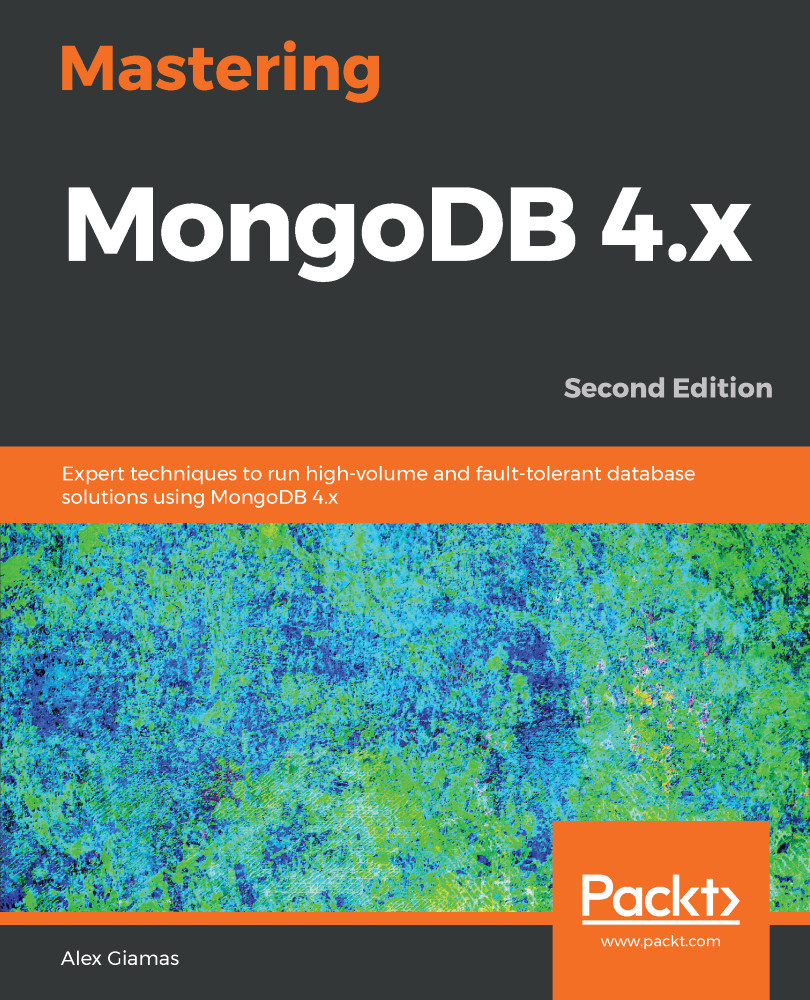Overview of this book
MongoDB is the best platform for working with non-relational data and is considered to be the smartest tool for organizing data in line with business needs. The recently released MongoDB 4.x supports ACID transactions and makes the technology an asset for enterprises across the IT and fintech sectors.
This book provides expertise in advanced and niche areas of managing databases (such as modeling and querying databases) along with various administration techniques in MongoDB, thereby helping you become a successful MongoDB expert. The book helps you understand how the newly added capabilities function with the help of some interesting examples and large datasets. You will dive deeper into niche areas such as high-performance configurations, optimizing SQL statements, configuring large-scale sharded clusters, and many more. You will also master best practices in overcoming database failover, and master recovery and backup procedures for database security.
By the end of the book, you will have gained a practical understanding of administering database applications both on premises and on the cloud; you will also be able to scale database applications across all servers.


